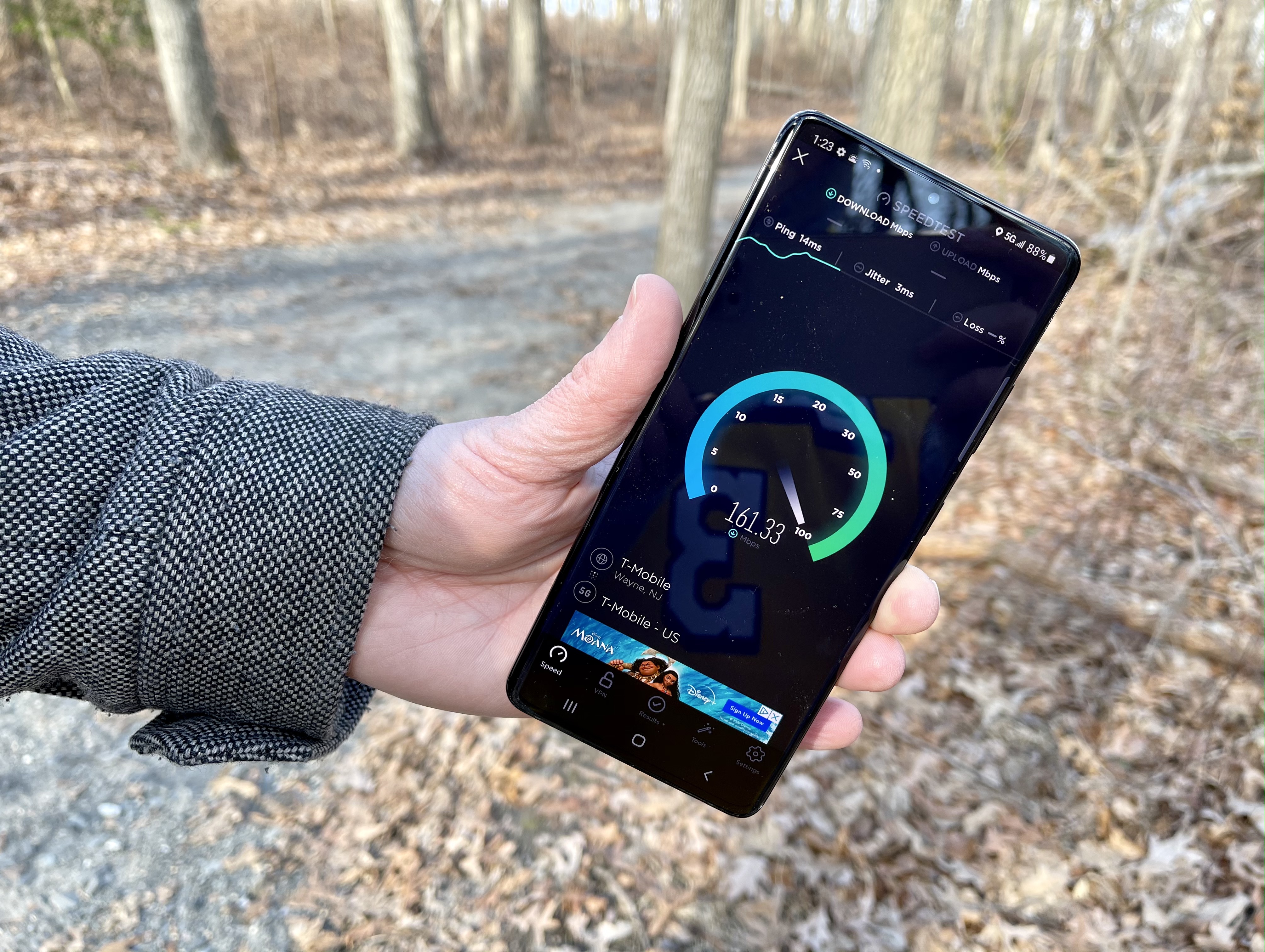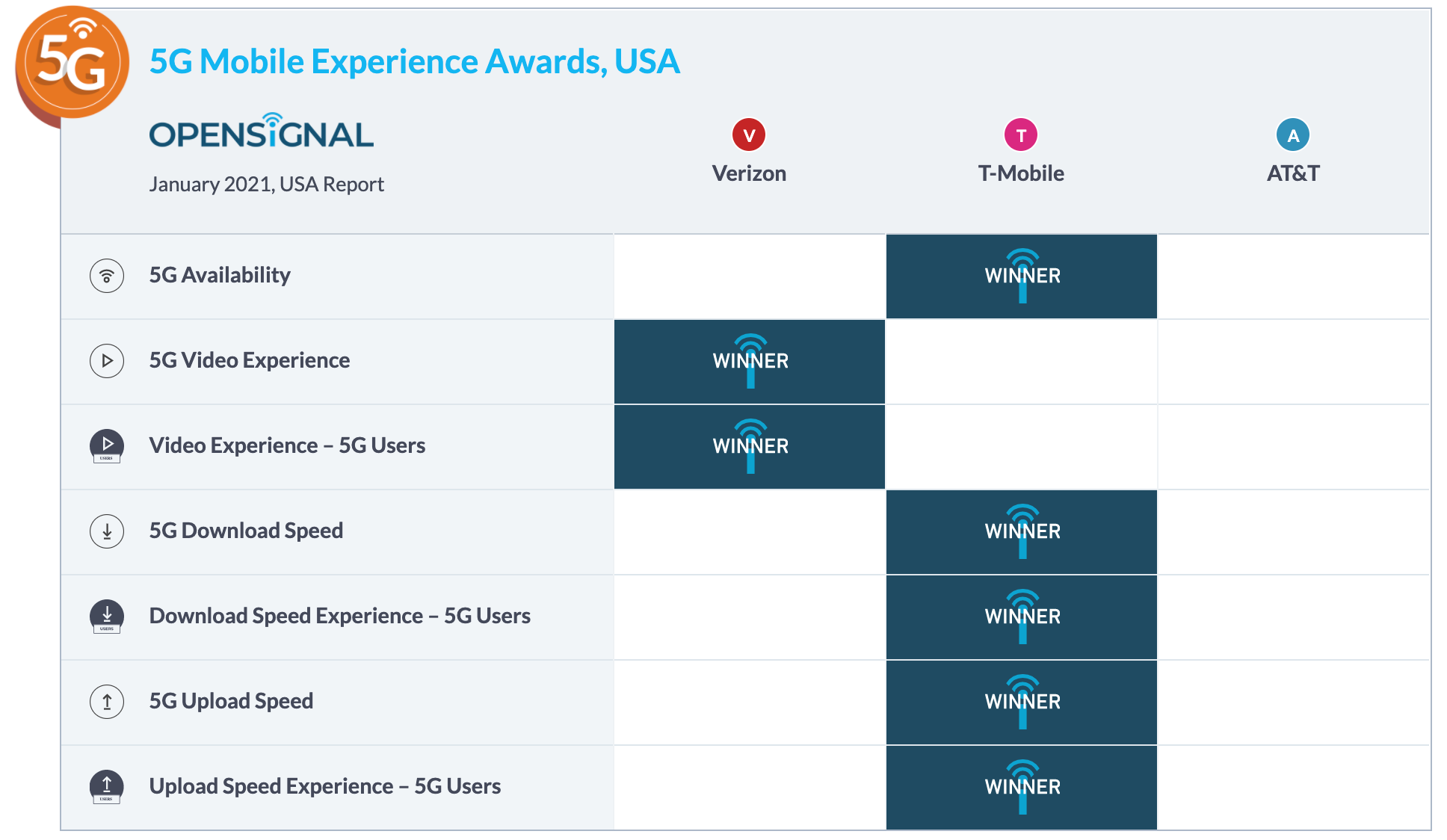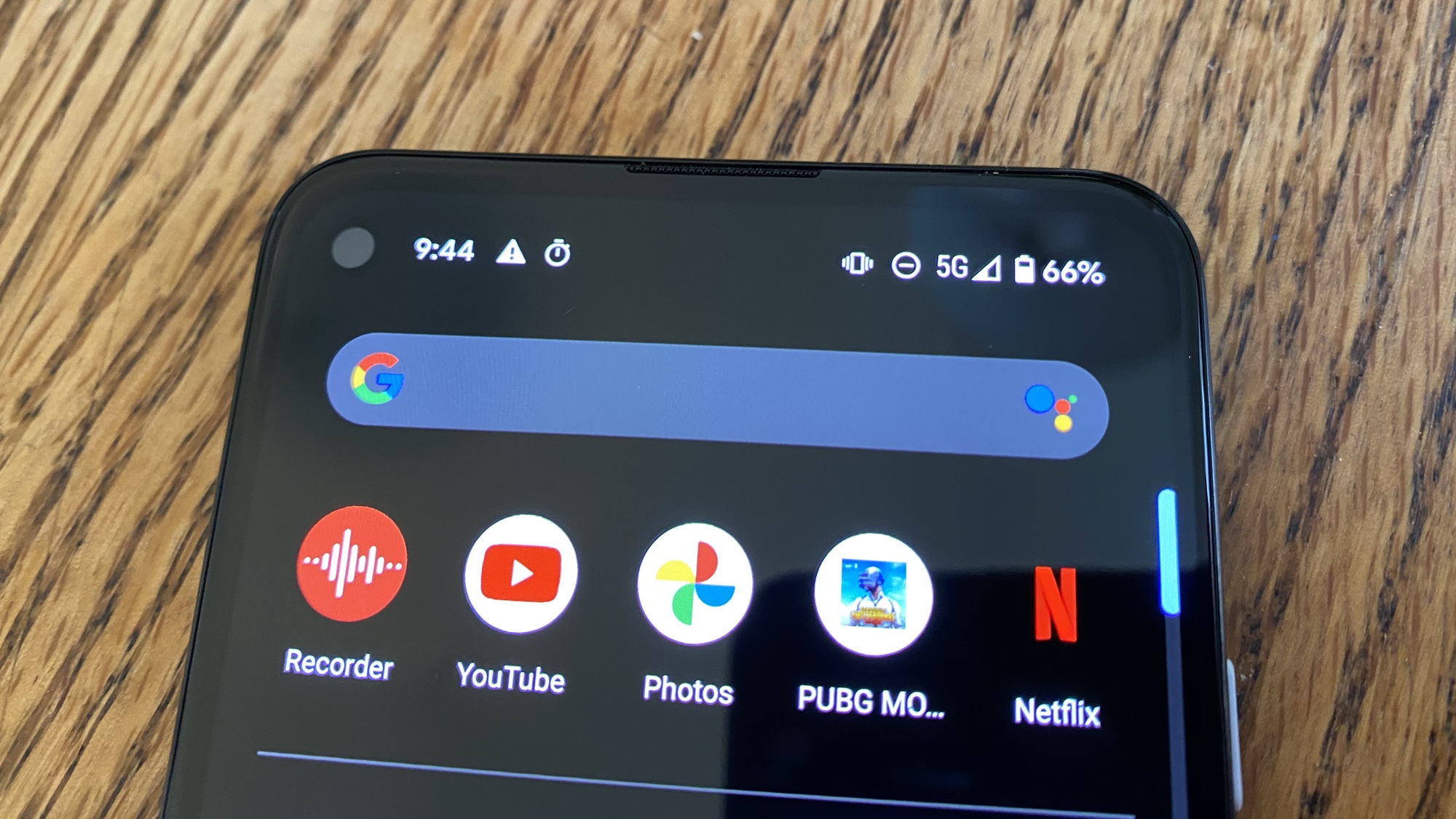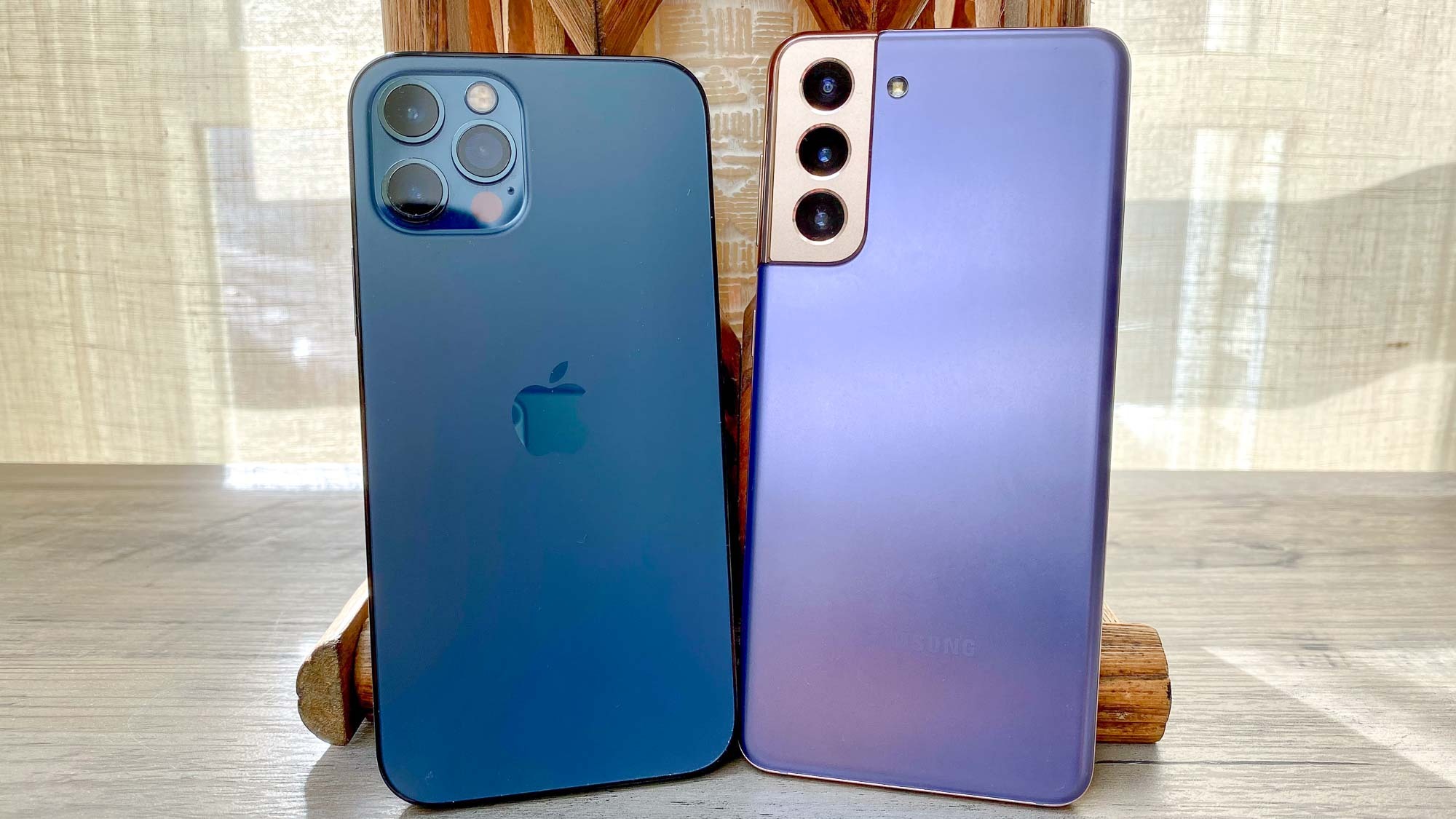Fastest 5G network unveiled — see which network is on top
AT&T, T-Mobile and Verizon all try to stake their claim to the best wireless network

Update: The fastest mobile network in the US just might surprise you.
A week after Ookla declared that AT&T had the best 5G performance at the start of the new year, more wireless testing firms have come out with reports of their own. And those dueling reports paint very different pictures about where you can expect the best 5G experience.
The winner in these looks at overall networking performance? That all depends on who's doing the counting.
- 5G vs 4G: What’s the difference?
- Verizon 5G: How it stacks up
- Plus: Apple hit with new iPhone lawsuit — what you need to know
Testing firm RootMetrics puts Verizon as the top performing overall in a preview of its semi-annual study, but notes that T-Mobile's 5G network covered more cities than anyone else by the end of 2020. Meanwhile, T-Mobile took the crown for speediest 5G performance in a new report from Opensignal, while umlaut gave T-Mobile the best marks for 5G availability and speed in a four-city test.
What's the truth behind the numbers? Let's dig into each report to find out.
RootMetrics network testing winner: Verizon
We’ll start off with RootMetrics, which is in the midst of preparing its "State of the Mobile Union" report on network performance in the second half of 2020. That's not stopping the testing firm from publishing its preliminary results, and Verizon came in first for six categories, sharing top honors with AT&T in the seventh.

That shared category was texting, as Verizon won the Reliability, Accessibility, Speed, Data, Call and Overall rankings. As for speed, Verizon recorded an average aggregate download speed of 40 Mbps, beating AT&T (33.8 Mbps) and T-Mobile (20.1 Mbps). Those numbers reflect national figures, as performance can vary from state to state and even city to city. T-Mobile usually does well on the state and metro levels, even if RootMetrics found the Uncarrier to be the weakest in terms of reliability overall.
Sign up to get the BEST of Tom's Guide direct to your inbox.
Get instant access to breaking news, the hottest reviews, great deals and helpful tips.
RootMetrics' preliminary report doesn't break out 5G numbers, though it notes AT&T's 5G footprint expanded during the second half of 2020, while T-Mobile offers the most expansive 5G coverage. Even with those two givens, though, RootMetrics calls Verizon "the carrier to beat." RootMetrics' full report is due next month.
Opensignal network testing winner: T-Mobile
Opensignal's report concentrates on 5G coverage, based on data from more than two million devices with about 15.13 billion measurements. The tests were conducted from September 16 to December 14, 2020, and they paint T-Mobile as the 5G leader at the moment.

T-Mobile won the 5G Download Speed award for the first time with an average download speed of 58.1 Mbps. AT&T came in second with 53.8Mbps, and Verizon came in third with 47.4 Mbps. Opensignal credits T-Mobile's integration of Sprint's 2.5GHz spectrum for an overall improvement in download speed during the last six months.
Meanwhile, download speeds for AT&T and Verizon dropped during the same period. In Verizon's case, that drop was caused by Big Red launching a nationwide network that uses lower spectrum than the super-fast mmWave towers it previously relied on. (Ookla noticed a similar effect in its report from last week.)
T-Mobile also won the 5G Upload Speed award with an average upload speed of 14 Mbps. Verizon was second with 11.9 Mbps, and AT&T was third with an average of 8 Mbps.
All three carriers saw big boosts in 5G availability, which measures the percentage of time users are connected to 5G coverage. According to Opensignal, T-Mobile was available 30.1% (up from 22.5%) of the time, while AT&T saw 18.8% (versus 10.3%) availability, and Verizon a 9.5% (a huge jump from 0.4%).

Just because a carrier has the fastest speed doesn’t mean it’ll offer the best video viewing experience due to different mechanisms used to transmit different types of data over the network. Verizon won in this category, with a score of 64.9 on a 100-point scale. AT&T came in second with 62.5, topping T-Mobile and its 57.8 score. Verizon also finished first in 5G video user experience.
Umlaut network testing winner: T-Mobile
Rounding things out is a small report commissioned by T-Mobile from umlaut, a German firm, which measured 5G network performance in Chicago, New York City, Washington, D.C., and Houston. Though much less detailed than Opensignal’s report, it also names T-Mobile as the overall winner.
The upload and download results are the average 4G/5G speeds.
In the D.C. area, umlaut found T-Mobile had an average download speed of 179 Mbps and upload speed of 45 Mbps, while Verizon got 87 Mbps and 20 Mbps. (those numbers reflect average speeds over 4G and 5G.) AT&T sat at 75 Mbps down and 15 Mbps up. However, T-Mobile’s new mid-band Ultra Capacity network pulled down a whopping 315 Mbps and 58 Mbps up. T-Mobile saw 94% availability, AT&T was at 95%, and Verizon trailed at 70%.
For Houston, T-Mobile’s average download speed was 87 Mbps and its upload speed was 31 Mbps. AT&T’s download was 62 Mbps and upload was 24 Mbps, while Verizon’s was 46 Mbps down and 15 Mbps up. However, T-Mobile once again led the crowd with its Ultra Capacity, coming in at 184 Mbps and 34 Mbps. T-Mobile and AT&T had the same 5G availability as they did in D.C., but Verizon fell further behind at 61%.
In New York City, T-Mobile led the group with an average download and upload speed of 148 Mbps and 50 Mbps, respectively. Verizon came in second with 66 Mbps and 32 Mbps, while AT&T came in third with 59 Mbps and 18 Mbps. T-Mobile’s Ultra Capacity saw 178 Mbps and 54 Mbps. For availability, T-Mobile had 94%, AT&T 90%, and Verizon 51%.
Finally, in Chicago, T-Mobile won once again with 105 Mbps down and 40 Mbps up. AT&T saw 78 Mbps and 23 Mbps, and Verizon had 59 Mbps down and 34 Mbps up. T-Mobile’s Ultra Capacity had an average of 194 Mbps down and 34 Mbps up. 5G network availability ranked T-Mobile first with 99.6%, Verizon second with 91.6%, and AT&T third with 87%.
5G performance outlook

5G is still relatively new and the emerging network standard will continue to grow as time goes on. The 5G modems in phones will get better and the coverage areas will also improve as the technology continues to evolve and carriers build out coveage.
The answer to the question of which is the best 5G carrier ultimately depends on where you live. Two of the four reports we know of list T-Mobile as the winner, both in speeds and availability. However, there are areas where Verizon and AT&T push into first place, so you’ll need to figure out what will be best for your area.

Jordan is the Phones Editor for Tom's Guide, covering all things phone-related. He's written about phones for over six years and plans to continue for a long while to come. He loves nothing more than relaxing in his home with a book, game, or his latest personal writing project. Jordan likes finding new things to dive into, from books and games to new mechanical keyboard switches and fun keycap sets. Outside of work, you can find him poring over open-source software and his studies.
